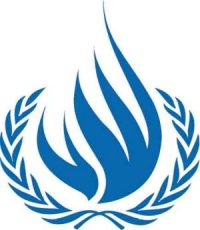From 2 to 8 July 2023 the UN Subcommittee on the Prevention of Torture and other Cruel, Inhuman or Degrading Treatment or Punishment (SPT) visited Croatia for the first time with the aim of assessing the treatment of persons deprived of liberty and the measures in place to protect them against torture and abuse.
The SPT visited various places of detention, including prisons, penitentiaries, police stations, migration centers and social care homes. In its preliminary statement following the visit the SPT delegation noted that Croatia has made progress in its efforts to improve the conditions in its detention facilities and penitentiaries, but also that more needs to be done, especially to reduce overcrowding and the negative effect it has on the persons deprived of liberty.
The Ombudswoman also warns of overcrowding in her annual reports, as a key problem related to numerous other problems in the prison system. Thus, in her 2022 report, she pointed out that overcrowding had increased further in 2022, seeing the prison occupancy rates of as much as 205% in the Osijek Prison, while in Zagreb Prison they were at their highest level since 2015.
During their visit to Croatia, the SPT met with Ombudswoman Tena Šimonović Einwalter, who introduced the delegation to the work of the institution’s National Preventive Mechanism (NPM). Deputy Ombudsperson Sasa Rajic and advisors to the Ombudswoman who perform the NPM tasks presented the delegation with the methodology of the field visits, methods of interviewing persons deprived of their liberty and of their cooperation with experts.
The SPT delegation and the NPM representatives jointly visited one of Croatia’s prisons and a border police station and exchanged experiences regarding the methodology of preventive visits and the importance of implementing recommendations concerning the treatment of persons deprived of their liberty.
In a press release, the SPT pointed out that: “[f]or the prevention system to function effectively, it is imperative that the relevant institutions engage with the NPM on its recommendations and findings.” This is another strong expression of support for the work of the Ombudswoman as an independent institution, after the European Commission did the same in its Rule of Law Report.
The Republic of Croatia ratified the OPCAT on 5 April 2005 and thereby committed to establishing an NPM and ensuring the availability of all necessary funds for the smooth performance of its activities (Art. 17 OF the OPCAT). On 28 January 2011, the Croatian Parliament adopted the Act on the National preventive Mechanism for the Prevention of Torture and other Cruel, Inhuman or Degrading Treatment or Punishment, which stipulates that NPM activities are performed by the Ombudsman. More about the NPM’s methods of work and recommendations issued throughout the years can be found here


